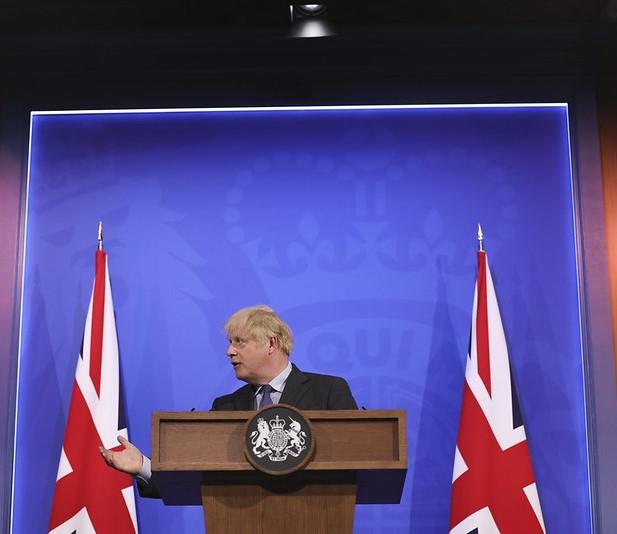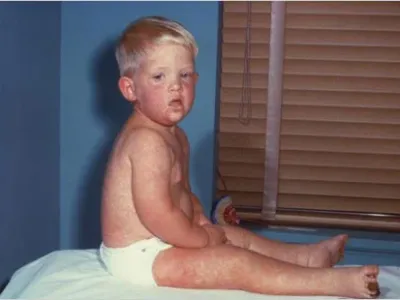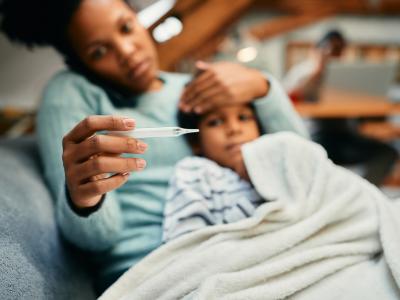UK Prime Minister Boris Johnson today announced that the final reopening phase will be delayed a month, due to the expanding spread of the Delta (B1617.2) SARS-CoV-2 variant.
In other global developments, the World Health Organization (WHO) welcomed vaccine donations that came out of the recent G7 meeting.
UK aims to increase vaccines, cut hospitalizations
The UK has been making headway with vaccination and reducing disease burden, but cases have been creeping up again, with the more transmissible Delta variant becoming dominant. The country has been gradually easing restrictions and had hoped to take the final reopening step on Jun 21.
At a briefing today, Johnson said the country will delay the step until about Jul 19 in order to allow more people to be vaccinated and to have their second dosed amid rising Delta variant activity, according to the BBC. He said cases are climbing by 64% per week and are doubling each week in the country's hot spots.
He said by Jul 19, officials project that two-thirds of adults will have received both vaccine doses.
Though full reopening is postponed, the government today eased capacity limits for weddings and wakes, as long as distancing measures can be maintained.
UK officials said hospitalizations have risen by 50% , which mostly involved people under age 65, the reverse of the pattern seen in earlier surges, according to The Guardian.
In a related development, Public Health England today said the two vaccines used in the United Kingdom performed well against the Delta variant after two doses. Its researchers found that the Pfizer-BioNTech vaccine was 96% effective and that the Oxford-AstraZeneca vaccine was 92% effective against the variant.
Dose-sharing pledges welcome, but gaps remain
At a G7 leaders' meeting in Britain that wrapped up yesterday, countries announced pledges of 870 million vaccine doses, half to be delivered by the end of the year. In a statement yesterday, the WHO and its partners welcomed the commitments and said G7 countries have committed to 1 billion doses. The WHO said the G7 leaders also reaffirmed their support for COVAX as the main system for providing vaccines to the poorest countries.
Given that large volumes of vaccine will be available from COVAX later in the year, COVAX urged development banks to take urgent steps to release funding that developing countries need to prepare their health systems for mass vaccination.
However, in an address to the group, WHO Director-General Tedros Adhanom Ghebreyesus, PhD, said despite the generous announcements about donations, the world still needs more donations, and it needs them faster. "Many countries are now facing a surge in cases—and they are facing it without vaccines," he said. "We are in the race of our lives, but it's not a fair race, and most countries have barely left the starting line."
In a statement today, the WHO said more than $16 billion is still needed this year to fully fund the work of the ACT-Accelerator, the global partnership that is speeding the delivery of tools to battle the pandemic, which include diagnostics, treatments, and vaccines.
The further funding is needed, for example, to test 500 million people in low- and middle-income countries, help secure oxygen supplies, and distribute 165 million doses of treatments, including dexamethasone, for critically ill patients.
Seth Berkley, MD, Gavi's chief executive officer, said the support from G7 countries is an important global solidarity moment. "As we strive towards or goal of ending the acute phase of the pandemic, we look forward to working with countries to ensure these doses pledged are quickly turned into doses delivered."
In other pandemic-related G7 developments, leaders voiced support for Japan in hosting a safe and secure Summer Olympics as a show of global unity. They also called for a new study into the origins of SARS-CoV-2.
More global headlines
- Russia's COVID activity is rising, especially in Moscow where vaccination levels remain low, according to the Washington Post. Over the weekend, Moscow's mayor urged unvaccinated nonessential workers to stay home and imposed other measures,
warning that the city's outbreak threatens to overwhelm intensive care unit capacity. - In Afghanistan, two hospitals treating COVID patients are turning away people, due to a lack of capacity, according to Reuters.
- Chinese doctors have observed that patients infected with the Delta variant, which is fueling outbreaks in Guangdong province, are sicker with conditions worsening more quickly that the original virus, the New York Times reported, citing comments from state TV.
- The global total just topped 176 million and is at 176,092,402 cases, along with 3,806,389 deaths, according to the Johns Hopkins online dashboard.






















